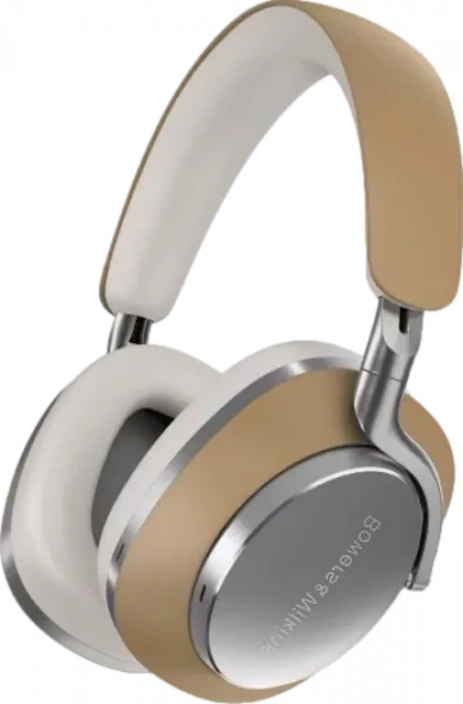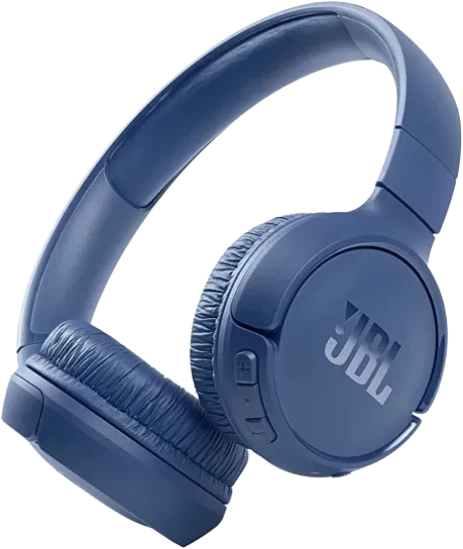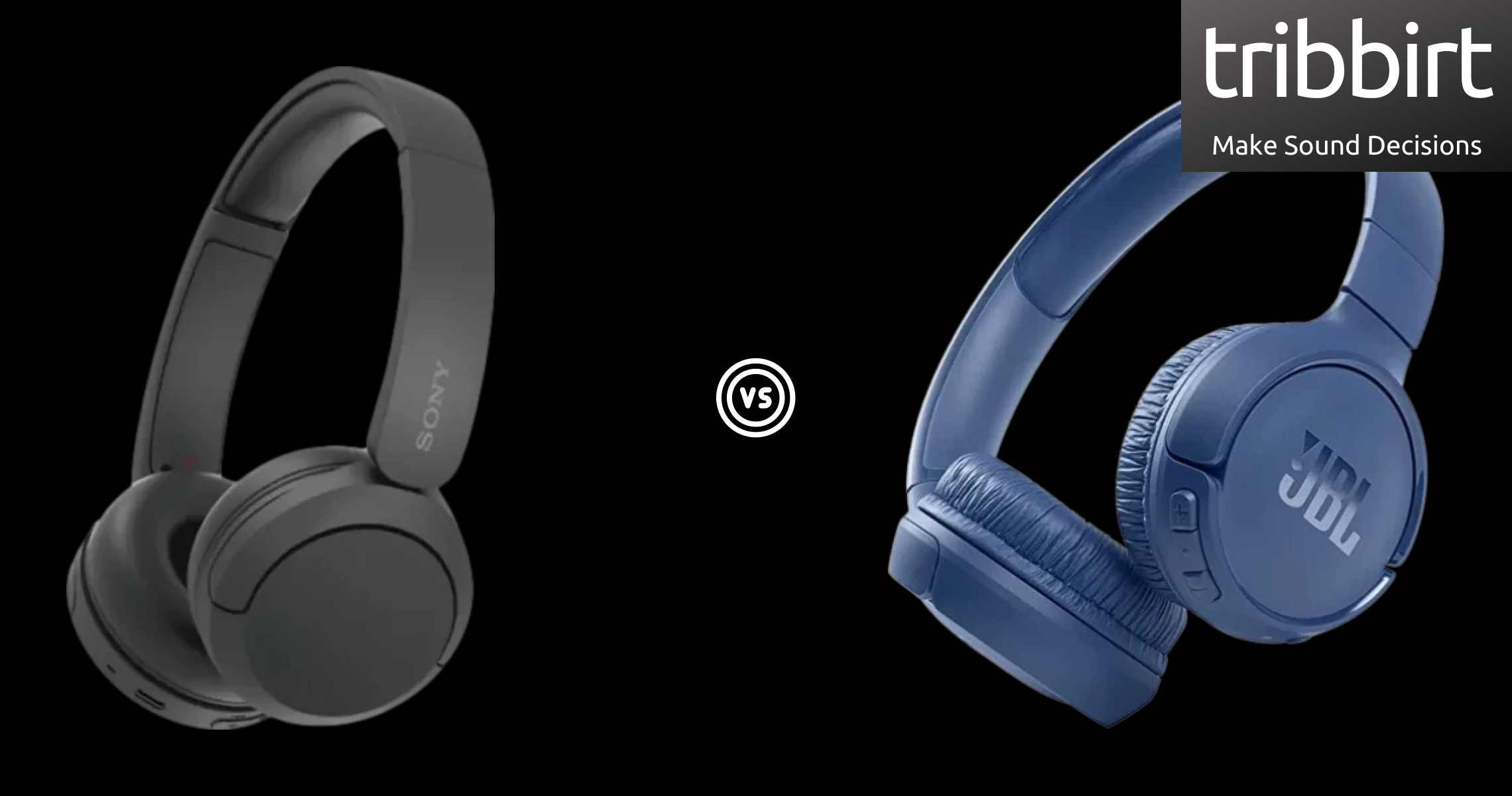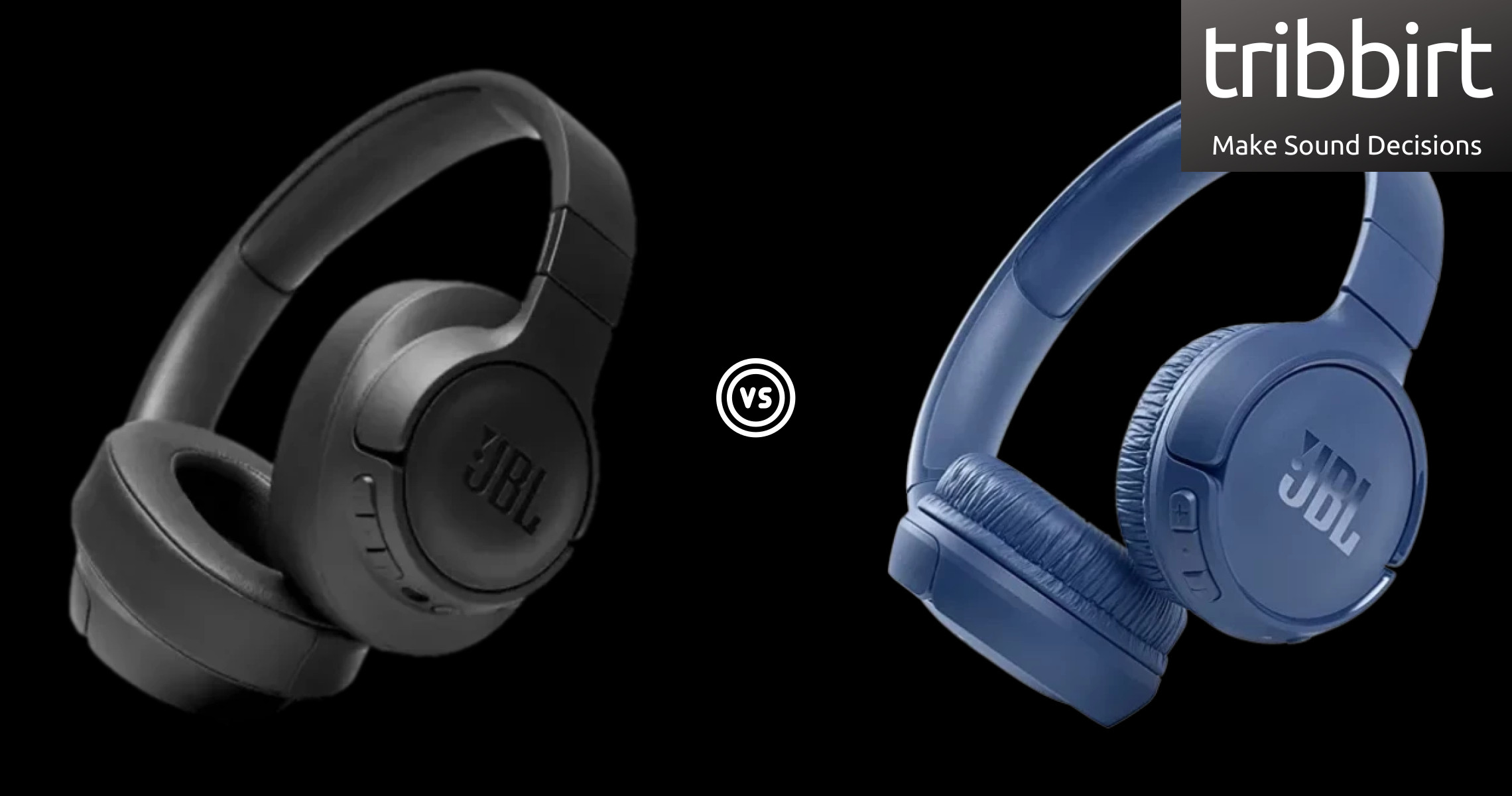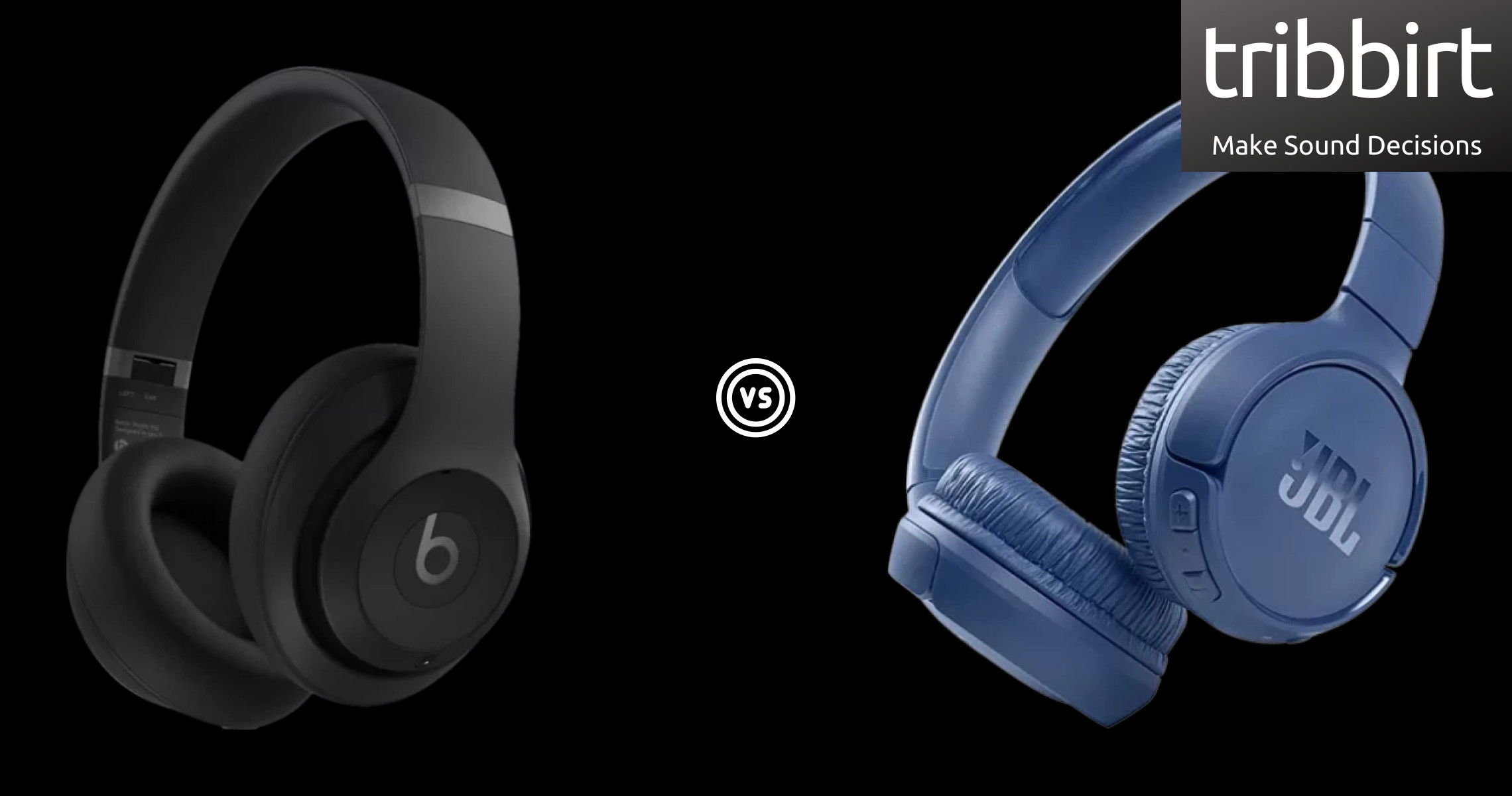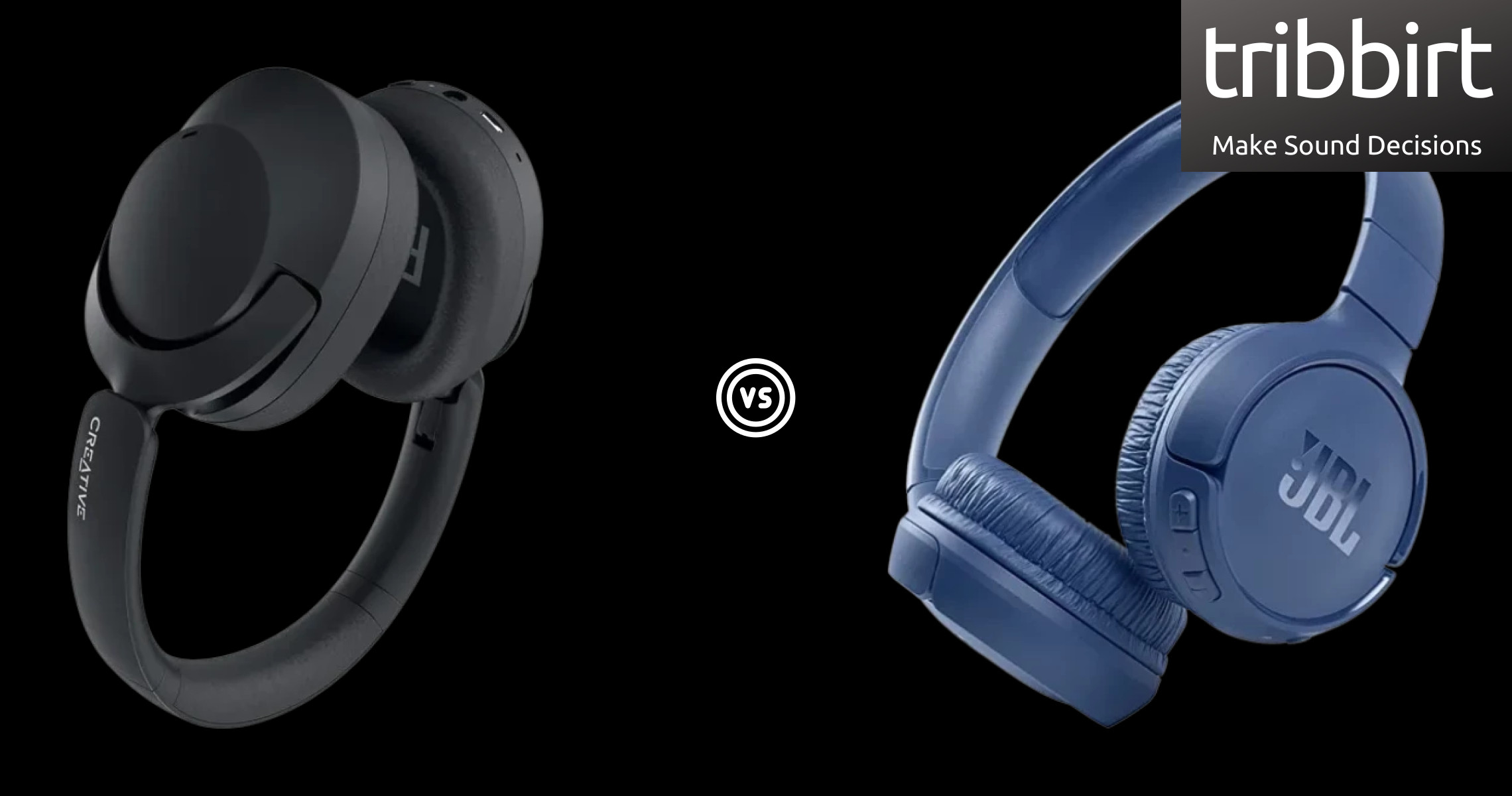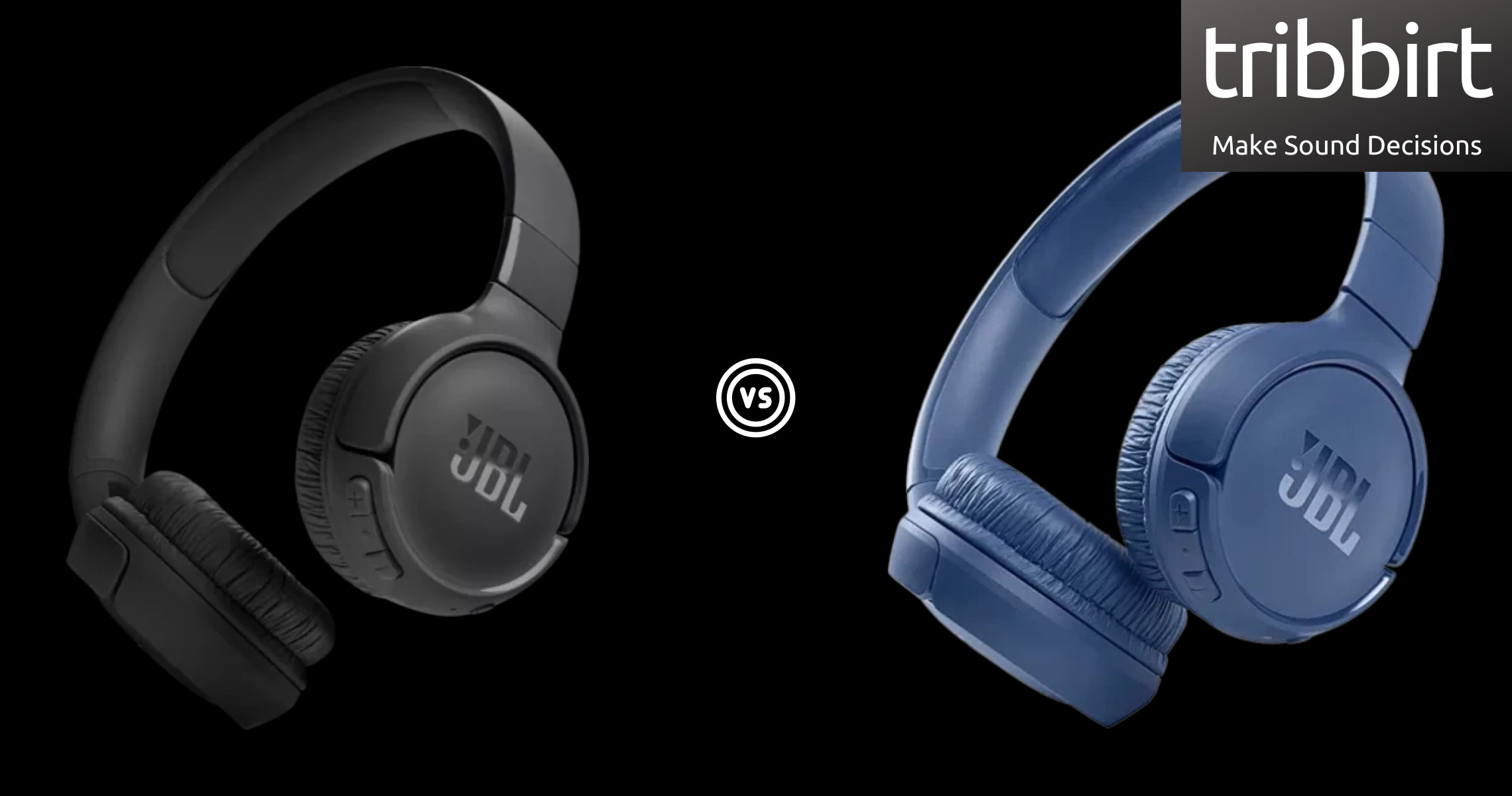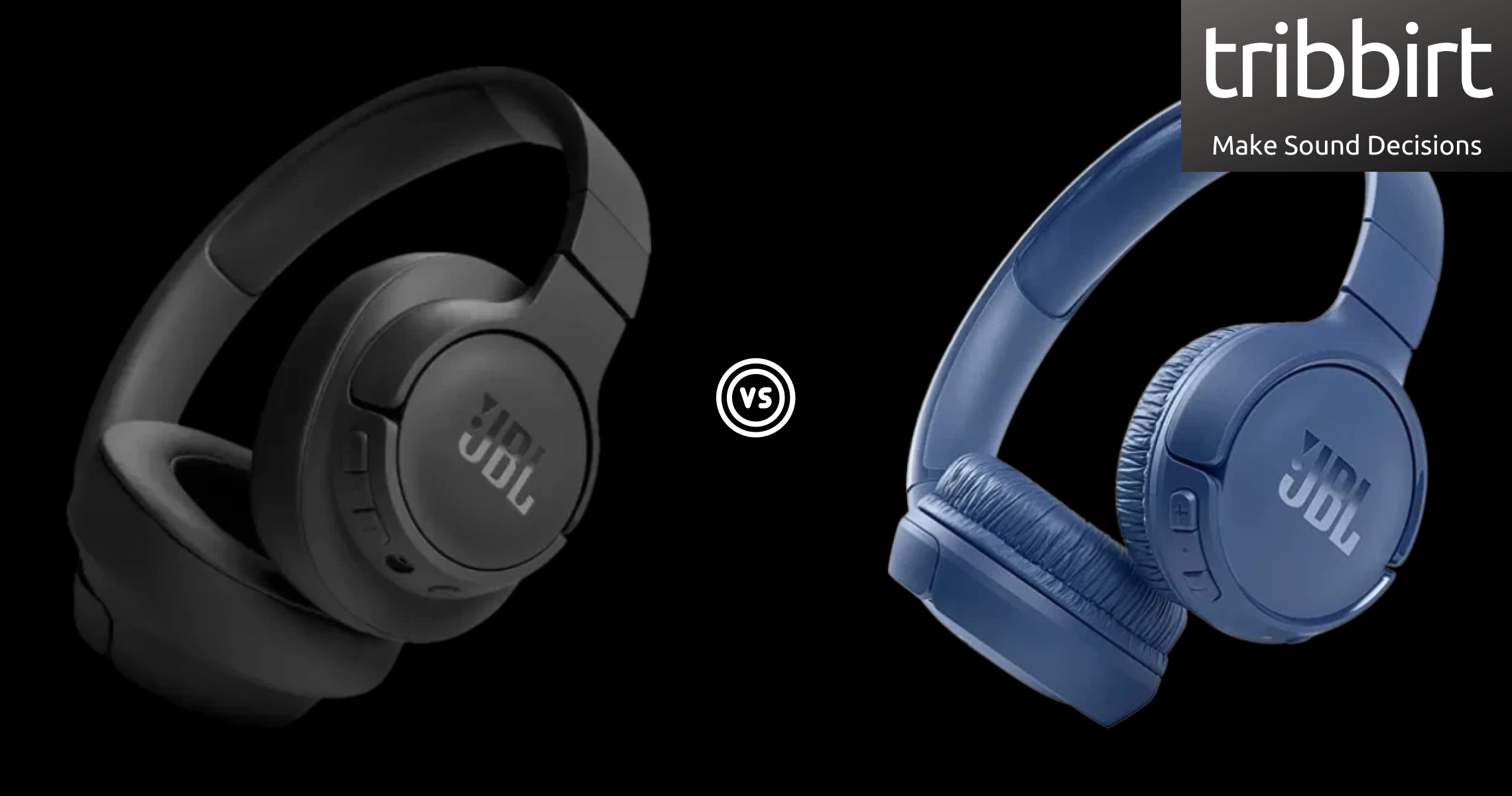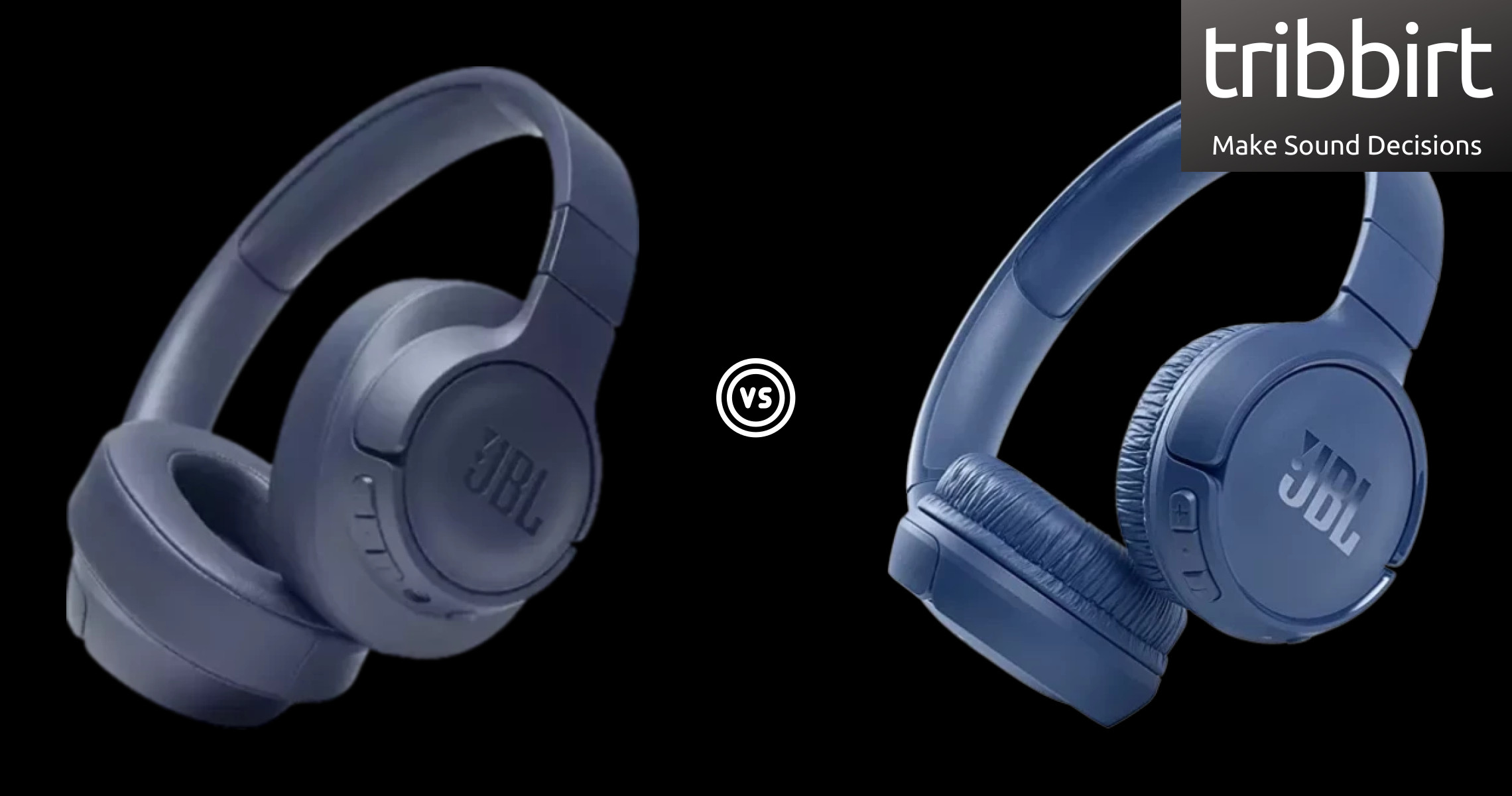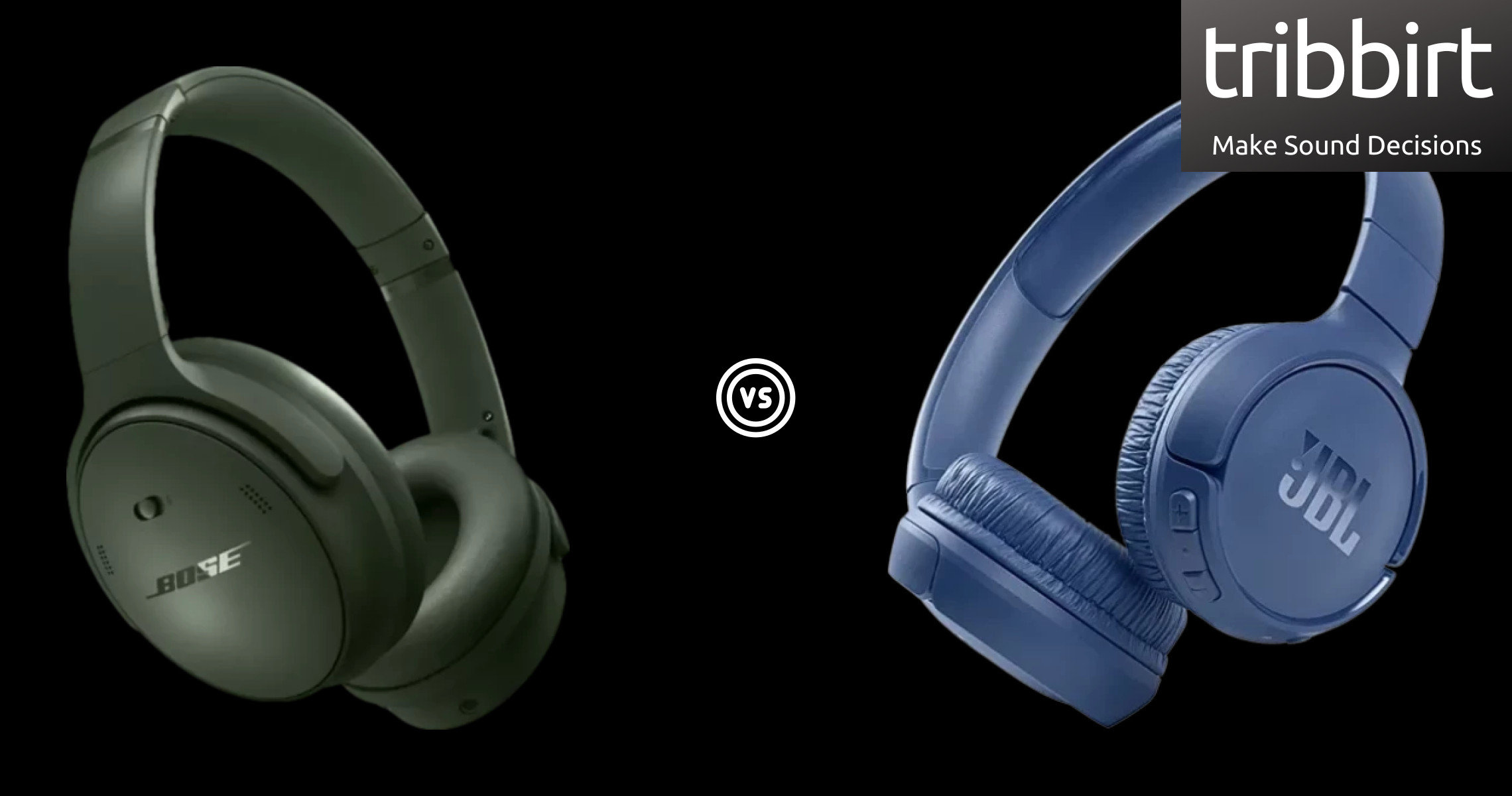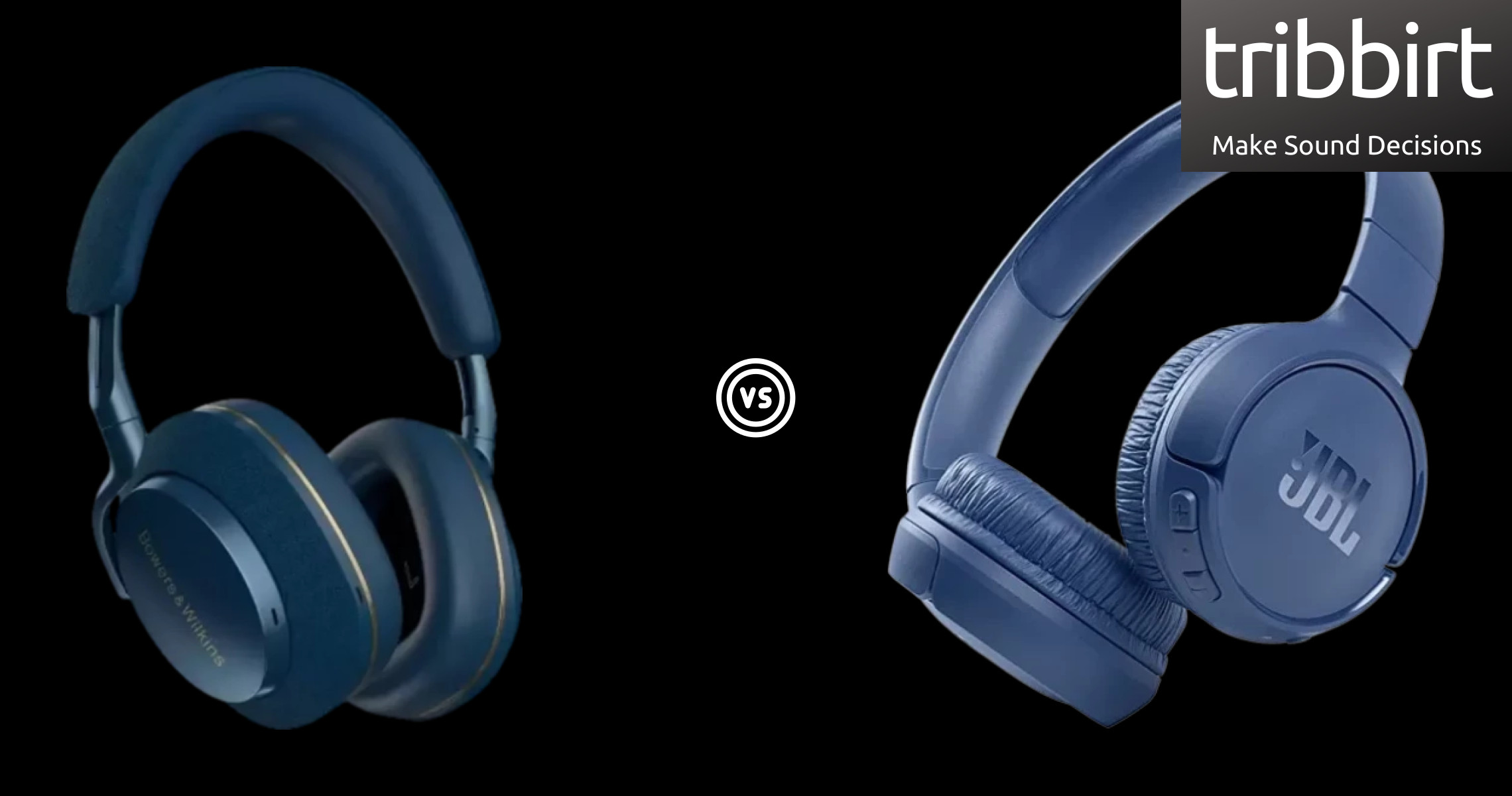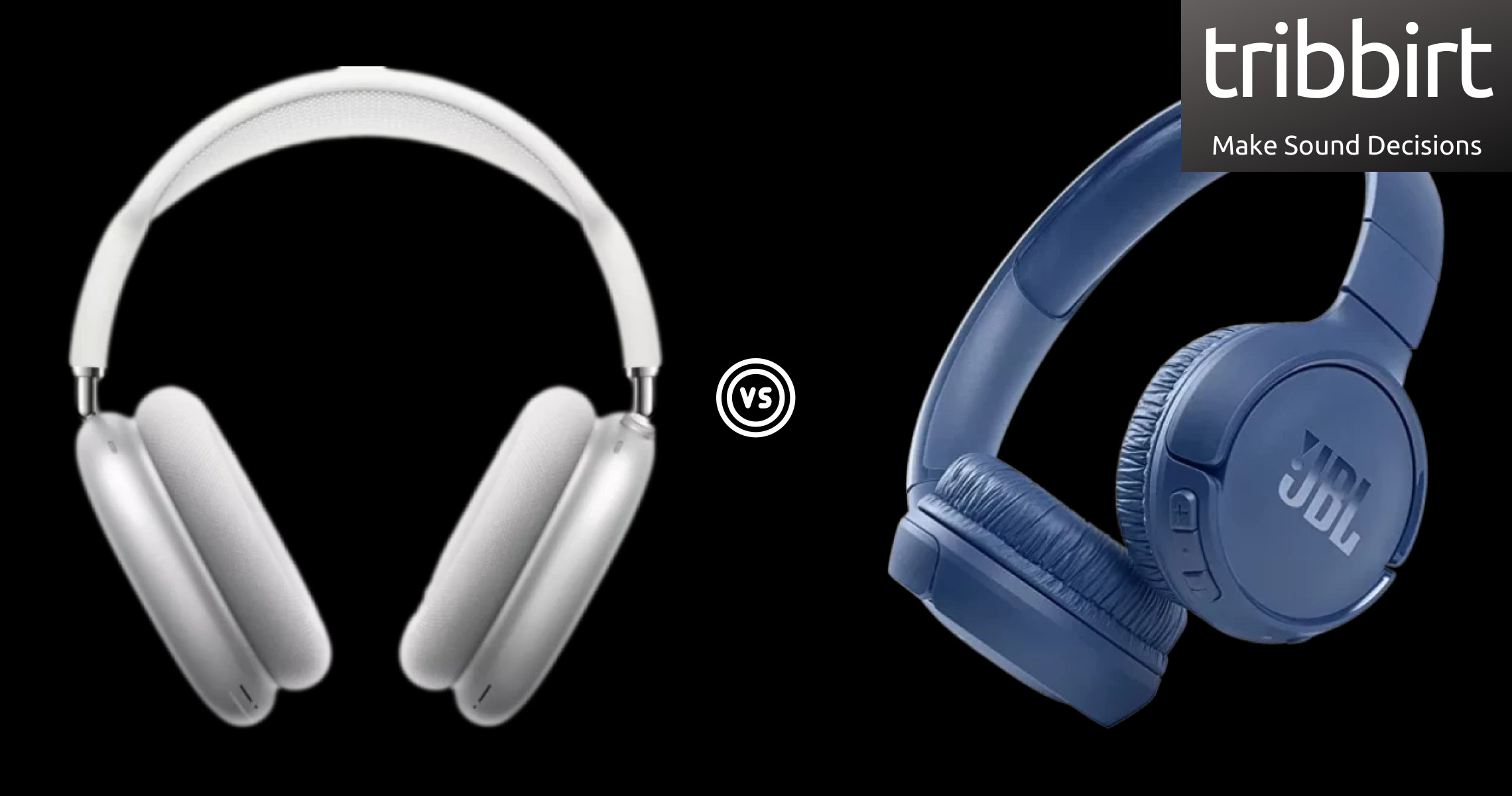The JBL Tune 510BT have a weight of 160g, these weigh below 320g, which we consider as the highest average a headphone should weigh for comfort during long use. We take in account a lower weight best because lighter devices are more comfortable to transport. Bowers & Wilkins Px8, at 320g
are heavier than the JBL Tune 510BT by 160g
JBL Tune 510BT are foldable, which makes them more portable.
Foldable headphones are easier to transport and take up less storage space. On-ear headphones have smaller earpads that sit on top of your ears, this JBL Tune 510BT comfortably rests on top of your outer ears. As it doesn't block out everything from the outside world, it's preferred in places like office environments and recommended for outdoor activities.
JBL Tune 510BT have stereo speakers, what this means is that JBL Tune 510BT's speakers deliver sound from independent channels on both left and right sides, creating a richer sound and a better listening experience. Both Bowers & Wilkins Px8 and JBL Tune 510BT have stereo speakers
Passive Noise Cancellation uses well-designed ear cups to seal out unwanted noise. This is used for both in-ear earphones and over-ear headphones where the headphone itself will keep surrounding noise out.
The JBL Tune 510BT sits tightly in place, creating an acoustic seal that reduces background noise and prevents your music from leaking out. Both of these devices have passive noise reduction which means that also the Bowers & Wilkins Px8 isolates you from ambient noise instead of actively using technology to cancel it out. Low-frequency response measures if and how well a particular audio device reproduces low audible frequencies and if it makes any changes to the signal while at it.
JBL Tune 510BT's lowest frequency is at 20Hz, the lower the low-frequency response, the stronger and juicier the bass. High frequency response measures if and how well a particular audio device reproduces high audible frequencies and if it makes any changes to the signal on the way through. JBL Tune 510BT's highest frequency is at 20,000Hz, the higher the high-frequency response, the clearer and crispier the treble.
Sound pressure is the average variation in atmospheric pressure caused by the sound, the sound level .i.e how loud something is can be perceived differently by different people so we need to have the means to get an objective measurement of sound level expressed in numerical terms.
The sound pressure level, SPL, is the pressure level of a sound, measured in decibels, dB, JBL Tune 510BT's measurement is 103.5dB/mW. Devices with a higher sound pressure level are generally louder when supplied with any given audio source.
The driver unit is the component that produces sound in the device, its size dictates the loudness of the headphone. JBL Tune 510BT driver unit is 32mm in diameter, bigger drivers are more powerful and can produce better bass. Bowers & Wilkins Px8 driver unit is 40mm in diameter,
making them have a larger driver unit than that of JBL Tune 510BT by 8mm
, many people have a misconception that driver units of a bigger size automatically produce better sound quality.
However, large drivers usually have difficulty reproducing high frequencies so yeah, larger drivers are capable of generating louder sound, but this does not mean that they produce better sound. Impedance is the device's resistance to the electromagnetic current, as electricity flows through a conductor, it faces electrical resistance that counters the flow of current. The resistance of a conductor is measured in ohms.
JBL Tune 510BT's impedance is 32Ohms, the lower the impedance, the easier it is to get higher volume and requires less power. If your headphones play wirelessly, cancel ambient noise, or enhance your listening experience with active features, their battery life will reduce over time. The device's battery life is given by the manufacturer, with longer battery life, you get to use it for longer and have to charge the device less often.
JBL Tune 510BT's battery life is 40 hours
Bowers & Wilkins Px8's battery life is 30 hours. Each time you recharge your headphones, they get a little less listening time. The effect is barely noticeable at first.
But over a few years, you may find that your device, no longer plays for long like it used to. It takes 2 hours to fully charge the JBL Tune 510BT's battery. It is recommended to fully charge the battery before using the headphones for the first time or when they have been unused for extended periods.
JBL Tune 510BT have a battery level indicator, an indicator shows you when the device has a low battery. The battery indicator lights indicate the charging status of your headphones. Bowers & Wilkins Px8 too have a battery level indicator, charging indicators allow you to determine the charging state of your headphones, whether fully charged, or the battery is running low.
A rechargeable battery is a type of electrical battery that can be charged, discharged into a load, and recharged many times, as opposed to a disposable or primary battery, which is supplied fully charged and discarded after use. JBL Tune 510BT's battery can be recharged and used over again. The Bowers & Wilkins Px8 too have a rechargeable battery.
JBL Tune 510BT can be used wirelessly, wireless devices allow you more freedom of movement not restricted by a cable. The Bowers & Wilkins Px8 also can be used wirelessly
Bluetooth is a wireless technology standard that allows data transfers between devices placed in close proximity, using short-wavelength, ultra-high frequency radio waves. JBL Tune 510BT has a v5
Bowers & Wilkins Px8 has a Bluetooth version of v5.2.
Newer versions provide faster data transfers. JBL Tune 510BT support USB TYPE-C, an industry-standard connector for transmitting both data and power on a single cable. The USB-C plug is now part and parcel of most current laptops, phones, and tablets, it features reversible plug orientation and cable direction.
Bowers & Wilkins Px8 too have USB TYPE-C
JBL Tune 510BT support AAC, a codec that is used for Bluetooth audio. It supports 24-bit audio at 250kbps. Because it uses psychoacoustic modeling, it can provide better results than other codecs at a similar bit rate.
The Bowers & Wilkins Px8 support AAC as well. Designed to be the successor of the MP3 format, AAC generally achieves higher sound quality than MP3 encoders at the same bit rate. Bluetooth is a short-range wireless technology standard that is used for exchanging data between fixed and mobile devices over short distances.
The JBL Tune 510BT can connect at a 10meters distance via Bluetooth or infrared to another device. JBL Tune 510BT have only 1 microphones, more microphones result in better sound quality and enable the device to filter out background noise. The Bowers & Wilkins Px8 microphones are only 2.
JBL Tune 510BT support multipoint, which allows you to link to more Bluetooth devices and switch between them. For example, you can easily switch calls from one device to another without having to manually disconnect and reconnect. There is a control panel on the JBL Tune 510BT body, so you can easily access the volume control or remote without having to interact with a cable or another device it's connected to.
The Bowers & Wilkins Px8 too have a control panel on them. JBL Tune 510BT can be used as a headset. A headset is one headphone or pair with a built-in microphone.
Headsets can be used for apps that require communication i.e. Zoom, Google Meet, Skype, games with voice chat, mobile phones, etc. Bowers & Wilkins Px8 can be used as a headset.
since they have a built-in microphone
The period of time that warrant free repair and adjustment services in case of a malfunction occurring under normal use that has followed instruction manuals. When covered under the manufacturer’s warranty it is possible to get a replacement in the case of a malfunction. JBL Tune 510BT have a warranty period of 1 years
